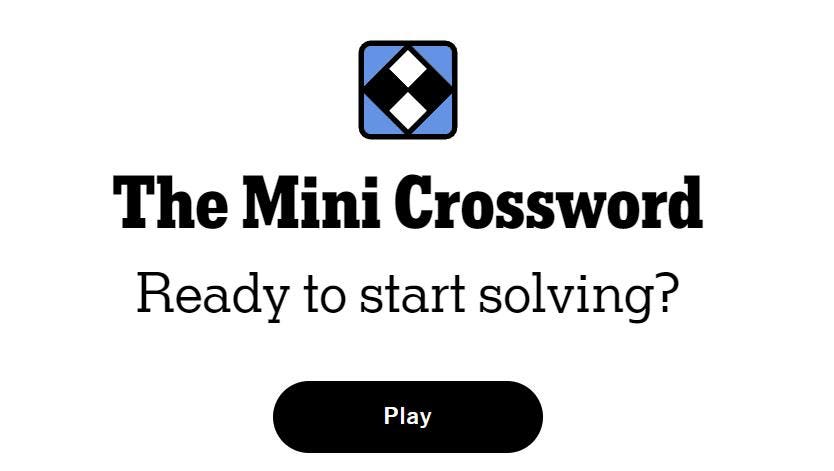While spotting red flags in others is a helpful form of self-protection, learning to recognize your … More
The phrase “red flags” has gained immense traction as a buzzword — a shorthand for warning signs or potentially harmful behaviors in a person that turns up on our radar. It’s possible that you already know or have a list of red flags to watch out for in others.
While this awareness is necessary to know what you want and what you simply will not accept from people, the problem arises when you’re only pointing fingers at the other person without reflecting on your own behavior.
The point is not to become your biggest critic, start self-loathing or feel guilty. However, recognizing what your red flags are is a vital step toward being accountable for what you bring to the table. The effort also must be to understand your repeating patterns and the ways you might be unintentionally hurting others.
This kind of reflection requires honesty and vulnerability along with a willingness to face certain uncomfortable truths about yourself. This discomfort is a part of the process, which ultimately leads to deeper self-growth.
Here are three ways to start doing the inner work by recognizing your red flags.
1. Notice How You Handle Conflict
Conflicts can often reveal parts of you that feel unsafe and where your red flags may show up the loudest.
Disagreements naturally threaten your sense of safety, acceptance or control. A tense situation with someone you love and care about has the potential to bring unresolved emotions to the surface.
Conflicts often bring up deeper emotional wounds and unconscious defense mechanisms like shutting down, lashing out or deflecting. You may not even be aware of them or how they might be affecting the other person and your relationship with them.
In research published in The Spanish Journal of Psychology in 2021, 405 young Spanish couples were examined to see how their attachment styles (anxious, avoidant or secure) influenced the way they handled conflict in their romantic relationships.
Researchers found that:
- People with anxious attachment were more likely to use conflict engagement (like yelling, blaming or escalating the issue). These often led to lower relationship satisfaction.
- Those with avoidant attachment tended to withdraw during conflicts, avoiding communication or shutting down emotionally, which was also linked with poorer relationship quality.
- People with secure attachment were more likely to use positive problem-solving, such as open communication and compromise, which was tied to greater relationship satisfaction.
So, observing your patterns in terms of handling conflict is necessary to be mindful of their impact.
This helps you understand deeper emotional patterns that may be impacting the quality of your relationships. The more awareness you gain, the more you can learn to respond in ways that build connection rather than break it.
2. Notice How You Apologize
The ability to apologize genuinely without defensiveness is a sign of emotional maturity. It is possible that your apologies may be shaped more by seeking relief and less by repair. While that’s understandable and can naturally happen to most people without realization, it becomes important to pause and reflect on where your apology is coming from.
A 2022 study explored two major aspects of apology. Firstly, researchers focused on understanding what makes someone more likely to give a sincere and high-quality apology after hurting someone. Secondly, they looked at why others might avoid apologizing altogether.
This was studied through two online vignette experiments. Researchers looked at two types of humility.
- Intellectual humility. Being open to the idea that you might be wrong or have more to learn.
- General humility. Having a grounded, modest view of yourself overall.
Researchers found that people with more general humility gave better-quality apologies and were less likely to avoid fixing the issue across all types of conflict. People with intellectual humility only gave better apologies in situations specifically involving disagreements or intellectual issues.
People who made more empathic effort (trying to understand how the other person feels) and were less focused on protecting their ego were more likely to apologize well.
This study highlights that the quality of your apology is deeply tied to internal traits, such as your capacity for humility, empathy and tolerance of being wrong.
Reflecting on your apology pattern is about understanding deeper emotional habits, unresolved fears and relational red flags that may be at play. Your “apology language” reflects how you handle vulnerability and responsibility in close relationships, both of which are foundational in building healthier connections.
Bringing more awareness to your ways of apologizing helps you rework the way you relate and connect with people and enhances the quality of your relationships in the long run.
3. Notice How You React When Someone Sets A Boundary
Boundary setting essentially plays a key role in sustaining healthy and emotionally safe relationships. Whether it’s setting your own or respecting another person’s, what determines the health of a relationship is not just the boundary, but the way both people respond to it.
Often, if you struggle to recognize and assert your boundaries, you may also have difficulty recognizing or respecting those of others. This lack of awareness can lead you to unknowingly indulge in potentially harmful behaviors that might threaten the trust and emotional safety within the relationship.
A 2024 study published in Personality and Environmental Issues sought to systematize existing psychological knowledge on how personal boundaries impact mental and relational health. The study specifically goes in depth on how boundaries are defined, exploring the different types as well as their essential functions in regulating interpersonal space.
Instead of defining boundaries as just rules or preferences, they were instead defined as an internal and external psychological space that helps us differentiate ourselves from others.
This space includes not just physical proximity but also emotional, mental and even spiritual aspects:
- Physical boundaries refer to the tangible, spatial limits around the body that regulate physical contact and proximity.
- Emotional boundaries involve managing and differentiating feelings, both one’s own and those of others and help prevent emotional enmeshment.
- Mental boundaries define the space where your thoughts, beliefs and values exist. They allow you to distinguish your ideas and opinions from those of others and help maintain cognitive autonomy.
- Spiritual boundaries are related to your sense of meaning and purpose, helping you preserve your unique spiritual or existential identity.
Each of these serves a different but equally important function in preserving any individual’s psychological autonomy and relational balance.
By diving into these different types, the study highlights how boundaries operate like a personal compass. Basically, they help you determine what to let in and what to keep out.
Boundary functioning connects back to your early experiences, as explained in the study. Secure and consistent caregiving helps build a foundation for healthy boundary setting.
On the other hand, inconsistent and neglectful environments may leave a person either overly rigid or with extremely weak boundaries, both of which are damaging to the well-being of the individual and their relationships.
The researchers highlight the importance of assertiveness as a regulating force in the case of boundary setting. Simply put, assertiveness helps you advocate for yourself while also remaining open to connection. This is a trait that people who struggle with boundaries often lack.
So, if you happen to recognize a negative reaction when a boundary is set (feeling rejected, trying to control the other person or withdrawing), it could reveal your underlying boundary issues or emotional vulnerabilities.
While boundary difficulties may feel hard to unlearn, it’s important to remember they often stem from patterns outside your control and are not your fault. But they are worth reflecting on. This is beneficial not just for your well-being but also communicates respect and care for those you love. Ultimately, focusing on them helps you maintain your peace and cultivate a healthier environment for relationships.
Move From Reaction To Responsibility
As you make a conscious decision to recognize your red flags, you set out on a journey to better yourself. It’s a way of honoring and showing up for yourself to grow beyond what’s been holding you back. In its entirety, it’s a powerful act of self-respect.
Choosing to pause and reflect on your unconscious patterns is a way of taking your power back from the unconscious, sometimes unhealthy, script that runs the show from behind the scenes in your relationships. You are choosing to give yourself the chance to relate from a place of awareness, not reactivity.
From this mindset, you will connect better with both yourself and others. This is what truly transforms the way you show up — in love, in friendship and most importantly, for yourself.
Are you unconsciously engaging in self-defeating behaviors that undermine your relationship? Take this science-backed test to find out: Relationship Sabotage Scale









